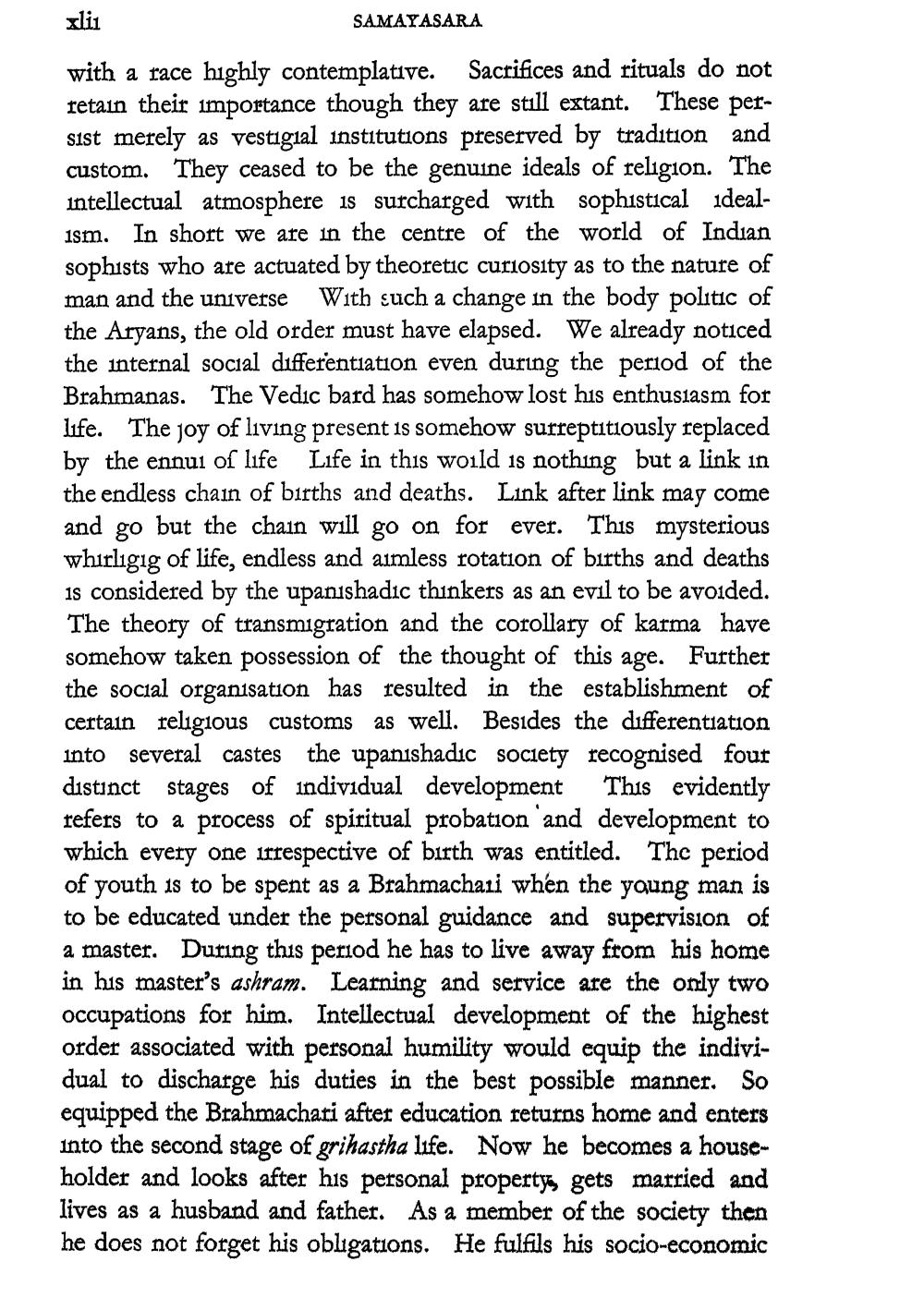________________
ينله
SAMAYASARA
with a race highly contemplative. Sacrifices and rituals do not retain their importance though they are still extant. These persist merely as vestigial institutions preserved by tradition and custom. They ceased to be the genuine ideals of religion. The intellectual atmosphere is surcharged with sophistical idealism. In short we are in the centre of the world of Indian sophists who are actuated by theoretic curiosity as to the nature of man and the universe With such a change in the body politic of the Aryans, the old order must have elapsed. We already noticed the internal social differentiation even during the period of the Brahmanas. The Vedic bard has somehow lost his enthusiasm for life. The joy of living present is somehow surreptitiously replaced by the ennul of life Life in this would is nothing but a link in the endless chain of births and deaths. Link after link may come and go but the chain will go on for ever. This mysterious whirligig of life, endless and aimless rotation of births and deaths is considered by the upanishadic thinkers as an evil to be avoided. The theory of transmigration and the corollary of karma have somehow taken possession of the thought of this age. Further the social organisation has resulted in the establishment of certain religious customs as well. Besides the differentiation into several castes the upanishadic society recognised four distinct stages of individual development This evidently refers to a process of spiritual probation and development to which every one irrespective of birth was entitled. The period of youth is to be spent as a Brahmachari when the young man is to be educated under the personal guidance and supervision of a master. During this period he has to live away from his home in his master's ashram. Learning and service are the only two occupations for him. Intellectual development of the highest order associated with personal humility would equip the individual to discharge his duties in the best possible manner. So equipped the Brahmachari after education returns home and enters into the second stage of grihastha life. Now he becomes a householder and looks after his personal property, gets married and lives as a husband and father. As a member of the society then he does not forget his obligations. He fulfils his socio-economic




